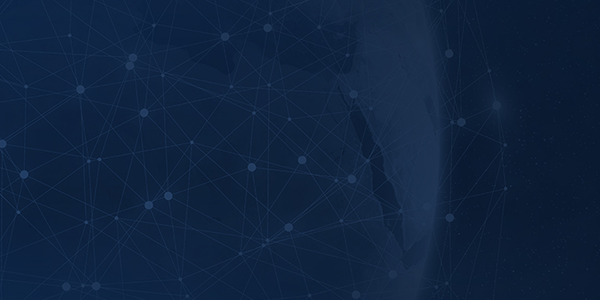Virtual exchange gives educators a valuable opportunity to provide an enriching cross-cultural experience by implementing social emotional learning and awareness into programming. Many virtual exchange programs focus on creating awareness and collaborating on skill development and, in turn, help cultivate lifelong resiliency skills among young people, which is essential to their mental wellbeing. Each program looks different and, depending on the theme, there are many ways educators can incorporate social emotional learning (SEL) into virtual programming in an accessible and impactful way to help students learn critical social emotional learning skills, coping skills, and resiliency.
Virtual exchange programs offer cross-cultural learning and collaboration that inspires participants to become leaders, help their communities, and expose them to opportunities they did not know existed. With distinct learning outcomes, educators, who are often virtual exchange facilitators, set the tone for connections that can be made between participants. By incorporating SEL outcomes, facilitators can introduce skill-building and self-reflection from the get-go.
The goal of SEL and awareness is to cultivate skills and an understanding about human development and connection. Ashkanasy and Humphrey (1) argue that “emotion plays a key role in communication…emotional expressions are universally recognized across cultures, thus demonstrating their importance to communication.” Virtual exchange provides global experiences and opportunities to celebrate differences and connect on mutually understood emotions.
The five core competencies of SEL are self-awareness, self-management, responsible decision making, social awareness, and relationship skills. When working with participants in a virtual exchange environment, facilitators can invariably teach them these skills that impel them to take command of how they react to difficulties. An alumnus of World Learning’s virtual exchange program, The Experiment Digital, explained, “This experience equipped me through a journey of self-discovery to find and uncover my true passions.” It is that self-discovery journey where facilitators can make the greatest impact with participants.
Focusing on core competencies in SEL such as self-awareness through virtual activities that help participants understand their purpose strengthens their love of self and empowers them to create their own path.
We can do this through reflection activities that compel a participant to view their strengths and pair them with what interests them. In addition, responsible decision making can take shape in virtual exchange like creating a college and career action plan based on program activities focused on academic skills young people need to pursue an in-demand career path. Introducing mutual, cross-cultural areas of opportunity in local and global communities also helps participants find solutions to common challenges such as flooding, literacy education, or beach pollution. Participants who complete a virtual exchange often display more confidence in their ability to make a difference in their communities. This is shown to further compel participants to focus on their social awareness. The Experiment Digital “has made me understand the strength I hold within myself to make change within my community from small actions to bigger projects.”
Virtual exchange practitioners serving a diverse population of young people may aspire to be responsible by practicing active listening (or reading) when participants share struggles in their lives. Participants can connect with others cross-culturally on these shared experiences through virtual exchange, as “students reported a growing awareness of cultural diversity and becoming aware of their partners’ multiple identities” (O’Dowd, 2). Learning about coping skills and suggestions from a group helps handle frustrations and awareness. Discussing struggles and how to overcome them in an asynchronous environment can also help participants feel more confident when they have time to think about thoughtful responses.
Incorporating SEL in virtual exchange program curriculum is mutually beneficial for facilitators and young people alike. It helps participants not only during the exchange, but also with their future learning and resiliency. Offering dialogue amongst participants gives them an additional component to consider and apply to what is happening right now in their lives. This skill-building will continue in most young people’s academic careers and personal lives. By contributing to participants’ skill-building, self-reflection, and global awareness, facilitators can serve as a guide in their personal journey of discovery and provide them with the tools to succeed in the 21st century global environment.
The Experiment Digital Leadership in STEM is implemented by World Learning and is supported by the J. Christopher Stevens Virtual Exchange Initiative (JCSVEI). JCSVEI is a U.S. Department of State’s Bureau of Educational and Cultural Affairs program administered by the Aspen Institute.
Christina Wagner is a Program Officer at World Learning, a global development and exchange organization delivering education programs in more than 150 countries. World Learning’s The Experiment Digital Leadership in STEM is a six-week virtual exchange program that encourages high school-aged participants in the U.S. and the Middle East and North Africa region to refine digital skills, explore career paths in STEM, and develop leadership competencies, while establishing cross-cultural connections.
(1) Ashkanasy, Neal M, and Ronald H Humphrey. “Current Emotion Research in Organizational Behavior.” Emotion Review, Apr. 2011.
(2) O’Dowd, Robert. “Virtual Exchange: Moving forward into the next decade.” Computer Assisted Language Learning, vol. 34, no. 3, 4 Mar. 2021, pp. 209–224, https://doi.org/10.1080/09588221.2021.1902201.
The Stevens Initiative partners with the U.S. Department of State on World Learning’s The Experiment Digital program. We are reviewing this website to ensure compliance with recent executive orders and other guidance.
